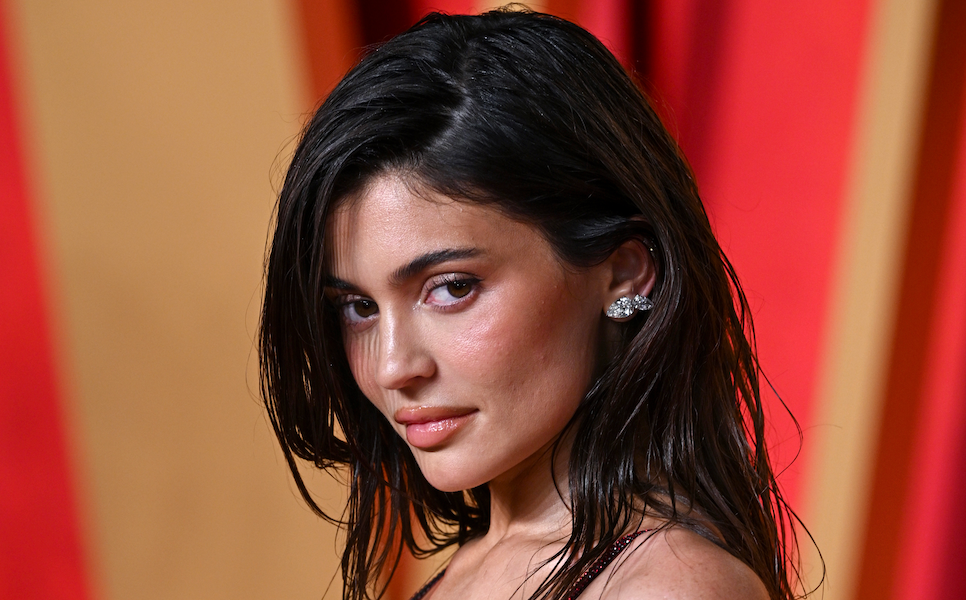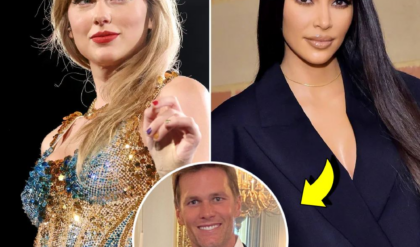KYLIE JENNER IS BROKE: Pushing RANDOM Brands, STEALING Products, and DESPERATELY Selling Her Mansion – She isn’t as wealthy as she appears| HO
Rumors say Kylie Jenner and the Kardashian fortune is running dry. For example, in 2024 alone Kylie Jenner has been promoting several new brands that she’s ‘created,’ but fans can’t look past the money grab. So, let’s get into it.

The Intriguing Case of Kylie Jenner’s Alleged Financial Woes
In recent years, Kylie Jenner, a prominent figure from the influential Kardashian-Jenner clan, has found herself at the center of public scrutiny over her financial status. Once lauded as the youngest self-made billionaire, a title bestowed by Forbes, which was later retracted, Jenner’s financial empire appears to be showing signs of distress. This essay delves into the various facets of Kylie Jenner’s business ventures, public perception, and the broader implications of celebrity-driven branding in the age of social media.
Background and Business Ventures
Kylie Jenner’s ascent into the limelight was fueled by her role in the reality TV series “Keeping Up with the Kardashians.” Her foray into the business world was marked by the launch of Kylie Cosmetics in 2015, known for its lip kits that sold out within minutes online. This venture was a massive success, significantly bolstering her wealth. Following this, Kylie expanded her entrepreneurial pursuits into skincare with Kylie Skin, fragrances, and even a baby product line, Kylie Baby.
In late 2023, Jenner launched a clothing label named Kai, advertised as a low-priced luxury brand, and shortly thereafter introduced a new fragrance called Cosmic in March 2024. These launches suggest a continuous drive to diversify her business portfolio. Yet, despite the breadth of her business ventures, recent developments have sparked discussions regarding the sustainability and genuine success of these enterprises.

Financial Speculations and Public Perception
Speculation about Kylie’s financial health began to intensify after several of her products were reportedly seen in discount outlets like TJ Maxx, an indication often interpreted as a decline in brand desirability and excess unsold inventory. Adding to the controversy, Jenner has been seen promoting various unrelated products, including a random mobile game called Travel Town, which has further fueled rumors about potential financial desperation.
Social media and tabloid speculation suggest that Jenner’s lifestyle, characterized by significant spending on luxury homes, cars, and a large entourage, might not be fully supported by her income and liquid assets. This perception is compounded by her recent attempts to sell an $18 million mansion she shared with ex-partner Travis Scott, reportedly at a loss.
Impact of Celebrity Branding and Media
The case of Kylie Jenner is particularly illustrative of modern celebrity branding, where personal image and business endeavors are deeply intertwined. Jenner’s initial success was largely built on her substantial social media following, which provided a ready market for her products. However, the shift from genuine endorsements to seemingly random product promotions raises questions about the long-term viability of influencer-driven brands.
The role of media plays a significant part in shaping public perception. Kylie’s every move is meticulously analyzed and discussed in various forums—from dedicated podcasts to social media platforms. This constant scrutiny magnifies any misstep or rumor, potentially affecting her businesses’ performance.
Economic Implications and Future Outlook
The economic implications of Jenner’s alleged financial troubles go beyond her personal finances. They reflect on the sustainability of celebrity-driven brands that may not necessarily rely on traditional business metrics such as product quality and customer loyalty. Additionally, the potential downturn in her business empire could have a ripple effect on the numerous employees and stakeholders involved in her various ventures.
As for the future, while current signs point to potential financial instability, the reality of Jenner’s financial health remains obscured by her private nature and the controlled release of financial details. It is possible that these challenges could prompt a strategic reevaluation of her brand positioning and business operations.
The world of celebrity brands is an intriguing landscape, painted with the broad strokes of massive success stories and tainted by notable failures. Kylie Jenner, a name synonymous with celebrity branding success due to the meteoric rise of Kylie Cosmetics, has lately found herself navigating a more tumultuous path with her newer ventures. The dynamics of these ventures, especially her brand Kai and her involvement in the apparel industry, provide a revealing case study of the complexities involved in maintaining a successful celebrity brand over time.
Rise of Kylie Cosmetics
Kylie Jenner’s initial foray into the beauty industry was marked by the launch of Kylie Cosmetics, which famously sold out its initial line of lip kits in minutes back in 2015. This brand capitalized on her then-recently enhanced lips, a feature that had garnered significant public attention and sparked discussions everywhere from social media to mainstream news. The success was astounding, primarily because it tapped into a clear market demand—innovative makeup products endorsed by a highly influential celebrity. Kylie Cosmetics not only offered a product but also sold a piece of Kylie’s own beauty regimen, making it highly desirable to her vast audience.
Expansion and Saturation
Following the success of her cosmetic line, Kylie ventured into other areas, including skincare with Kylie Skin and various apparel ventures such as Kylie Swim and the children-oriented Kylie Baby. However, these extensions haven’t mirrored the success of her initial venture. Critics and consumers have pointed out issues ranging from product quality to a lack of originality, suggesting that these efforts might be more opportunistic than passion-driven. The essence of innovation that propelled Kylie Cosmetics to its heights seemed diluted as the brand umbrella expanded.
Issues with Kai
Kai, Jenner’s luxury brand, has recently come under fire for reasons that reflect broader challenges in the celebrity branding arena. Accusations of unoriginality have been particularly damaging, with allegations that Kai’s designs were not only derivative but directly copied from smaller, established brands. Jessica Johansson Bell, a designer who has previously collaborated with Kylie, publicized a claim that one of Kai’s designs was a direct copy of her work. This accusation not only harms the brand’s reputation among consumers but also questions the ethical practices of the brand’s creative process.
Consumer Fatigue and Market Response
The market’s response to Kylie’s recent ventures indicates a shifting dynamic. While Kylie Cosmetics benefitted from being a first-mover in the celebrity makeup space, later ventures have not had the same impact. This is possibly due to a market that has become saturated with celebrity-endorsed products and brands, where novelty wears off quickly unless continually rejuvenated with genuine innovation and passion.
Moreover, consumer behavior has evolved. The digital age consumer is more informed and more critical, often seeking value, transparency, and authenticity. The backlash against perceived greed and lack of originality in Kylie’s newer ventures speaks to a broader demand for meaningful engagement and high-quality products that reflect true passion and innovation from their endorsers.
Learning from Kylie Jenner’s Branding Journey
Kylie Jenner’s experience is illustrative for any celebrity or business looking to build or expand a brand. It underscores the importance of:
- Authenticity and Passion: Genuine interest and passion for the products being created under one’s brand are indispensable. The market can discern between profit-driven products and passion-driven innovations.
Sustaining Innovation: Continuously innovating and offering new, high-quality products is crucial to keep the consumer interested and engaged.
Brand Integrity: Maintaining ethical standards in all aspects of business operations, especially in creative processes, helps build long-term trust and brand loyalty.
Understanding Market Saturation: Recognizing the saturation levels within specific markets can guide better decisions about brand expansion and product diversification.
Conclusion
The trajectory of Kylie Jenner’s branding ventures offers valuable lessons on the potential pitfalls of brand extensions and the importance of maintaining a clear, authentic brand identity. As Kylie adjusts her strategies in response to these challenges, her journey will continue to serve as a compelling case study for celebrity entrepreneurs and business strategists alike. The key takeaway remains that in the world of celebrity brands, sustained success is not just about capturing attention at launch but maintaining integrity, innovating relentlessly, and staying true to one’s brand ethos.
News
“Fucking nightmare, Iron Mike chased me round a car 20 times, thought he was gonna kill me”: Fat Joe talks about a crazy story about Mike Tyson!😮💨 | HO
“Fucking nightmare, Iron Mike chased me round a car 20 times, thought he was gonna kill me”: Fat Joe talks about a crazy story about Mike Tyson!😮💨 | HO ‘We about to get knocked out’ Rapper Fat Joe shares a…
HO – ‘WHAT?’: Olivia Dunne shares Taylor Swift Travis Kelce TikTok after starring alongside the Chiefs Super Bowl winner in energy drink commercial
HO – ‘WHAT?’: Olivia Dunne shares Taylor Swift Travis Kelce TikTok after starring alongside the Chiefs Super Bowl winner in energy drink commercial Olivia Dunne has shared a hilarious behind-the-scenes TikTok featuring Travis Kelce and referencing his girlfriend Taylor Swift after the pair starred in a new…
HO – Travis Kelce to compete with Chiefs teammate Patrick Mahomes as the duo earn Nickelodeon Kids Choice Awards nominations… while tight end’s girlfriend Taylor Swift also gets a nod
HO – Travis Kelce to compete with Chiefs teammate Patrick Mahomes as the duo earn Nickelodeon Kids Choice Awards nominations… while tight end’s girlfriend Taylor Swift also gets a nod Travis Kelce will compete against his running mate Patrick Mahomes for a Nickelodeon…
HO – WNBA game between the Chicago Sky and Indiana Fever that featured the controversial foul on Caitlin Clark averaged over a MILLION and a half viewers – an over 300% increase from 2023
HO – WNBA game between the Chicago Sky and Indiana Fever that featured the controversial foul on Caitlin Clark averaged over a MILLION and a half viewers – an over 300% increase from 2023 The WNBA‘s Chicago Sky-Indiana Fever game that featured…
HO – “All Good”: Caitlin Clark Had The COOLEST Reaction To Being Called A “White B****” By Pat McAfee
HO – Caitlin Clark Had The COOLEST Reaction To Being Called A “White B****” By Pat McAfee Caitlin Clark has offered a reaction to being called a “White B-” by Pat McAfee, according to Pat Mcafee himself. The ESPN show host crossed a line…
HO – NFL Fans Are Worried About Tua Tagovailoa After Shocking New Photo Emerges Of The Dolphins Quarterback
HO – NFL Fans Are Worried About Tua Tagovailoa After Shocking New Photo Emerges Of The Dolphins Quarterback Tua Tagovailoa has been the subject of many conversations this off-season after the Miami Dolphins were knocked out of the NFL playoffs in the…
End of content
No more pages to load











